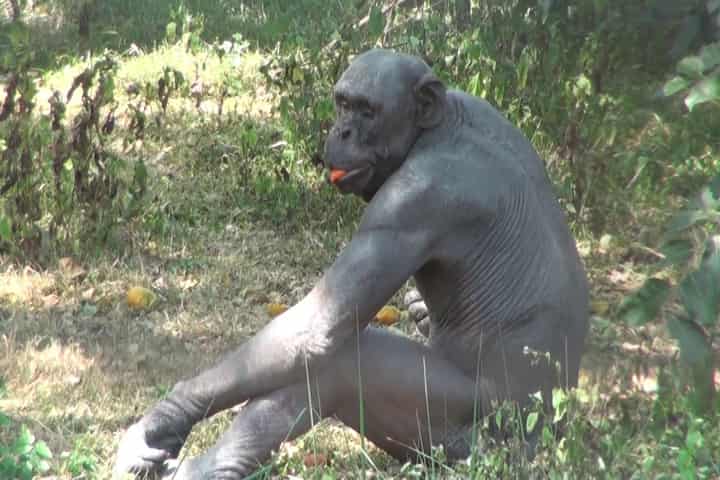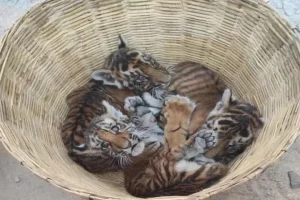With temperatures already going up in Karnataka’s Mysuru, the 133-year-old zoo in the city has started preparing for the onslaught of heat. Air coolers have been installed in the enclosures where primates are kept.
Sharing details with the media about these arrangements, Ajit M. Kulkarni, Executive Director of Mysuru Zoo aka Sri Chamarajendra Zoological Gardens informed that these coolers provide relief to the animals as they are sensitive to heat. Apart from this, these primates are provided fruits and coconuts in adequate quantities to prevent dehydration.
One of the oldest zoos in the country, Mysuru Zoo has more than 1,500 animals, birds and reptiles belonging to 168 species, including 624 mammals, 731 birds and 100 reptiles. Among the inmates of the zoo are four Bornean orangutans, two Western Lowland gorillas, and six chimpanzees. These animals have been obtained from different countries like Germany and Malaysia.
The task of managing those animals kept in open enclosures is more difficult. For them shelters are provided while arrangements have been made for sprinklers and fountains. For reptiles and birds water sprinklers and foggers have been arranged.
For the big animals like hippopotamus, gaurs and elephants mud wallows have been created so that they can not only rest and relax in them but also play in them.
Special attention is being given to mothers and their new born babies. Among these are tigers, lions and giraffes. For them apart from providing a cool environment, vitamins and minerals are also given as supplements.
Suitable changes have been made in the diet of the animals so that they are able to cope up with the heat. Citrus fruits, muskmelon and watermelon have been made part of their diet.
Further, veterinarians are keeping a constant vigil on all the animals to ensure that their health is not affected due to soaring temperatures.




















